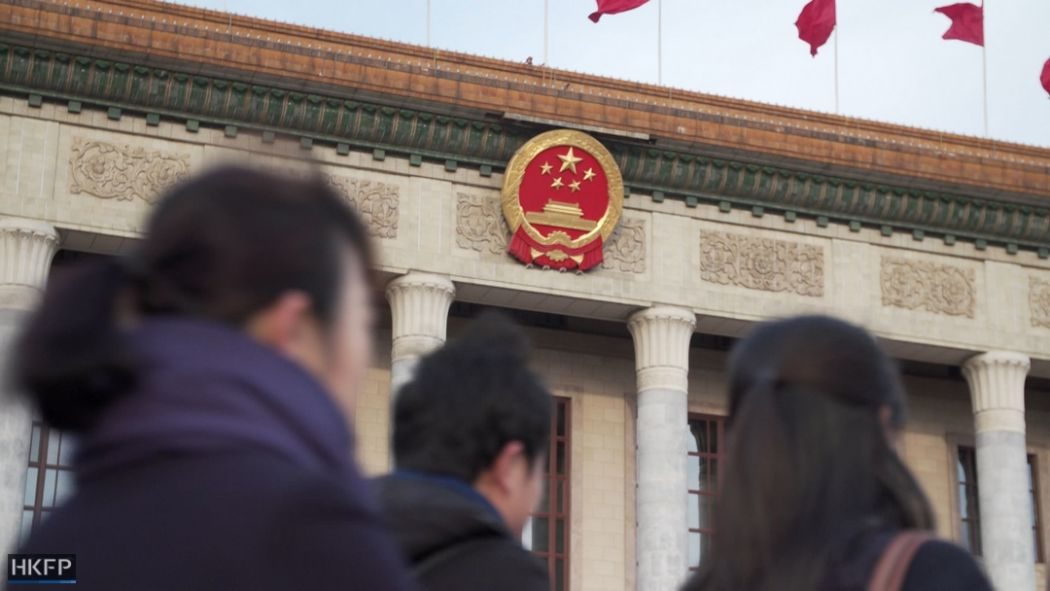China’s top legislature has announced it will speed up the formulation of national security legislation for Hong Kong as its 19th session opens in Beijing on Thursday. Members of the Standing Committee of the 13th National People’s Congress (NPC) will meet in China’s capital from Thursday to Saturday to deliberate draft legislation.

An agenda published by the NPC last Wednesday did not mention Beijing’s resolution to promulgate laws to punish acts it deems as a threat to national security in Hong Kong. However, according to state-run news agency Xinhua, spokesperson for the Legislative Affairs Commission of the NPC Standing Committee Yue Zhongming said on Tuesday that the plan included the speeding up of the formulation of relevant laws for safeguarding national security in Hong Kong.
“In December 2019, the 44th meeting of the Council of Chairpersons of the 13th National People’s Congress has approved the 2020 legislative working plan of the NPCSC in principle. Based on work procedure, adjustments had to be made based on the spirit of the Third Session of the 13th NPC and the opinions of the delegates,” Yue said.
The legislative work will be based on the legal system and enforcement mechanism approved by the NPC on May 28, he said. The rubber-stamp parliament agreed plans to impose laws on the city to criminalise secession, subversion, terrorism and foreign interference. The legislation would also allow mainland security agencies to operate in Hong Kong.

Beijing’s move to bypass the local legislature and insert the legislation in Annex III of the Basic Law has stunned democrats, civil society groups and trade partners, as such laws have been used broadly to silence and punish dissidents in China.
‘Save freedom’
On Tuesday, 86 local and international civil society organisations – including Amnesty International, Freedom House and Reporters Without Borders – wrote an open letter to the NPCSC, urging the proposed legislation to be scrapped. The groups cited concerns that the laws would threaten the basic rights and freedoms of Hongkongers, and the impact on the city’s “vibrant civil society.”
They also criticised the draft laws as containing “broad” and “vaguely defined” terms, which they saw could be used against any government critics and those who exercise and defend their human rights.

They added that any national security law should be “accessible, unambiguous, and formulated narrowly and with precision,” and a state should not invoke security legislation as a justification for policies targeted at “suppressing opposition to human rights violations” or “perpetrating repressive practices against its population.”
“We urge the NPCSC to abandon plans to introduce national security legislation for Hong Kong, as what is known about the draft law so far and the experiences with respective national security laws in mainland China strongly indicate that neither the law nor its application would conform to international human rights law and standards,” the groups wrote.
